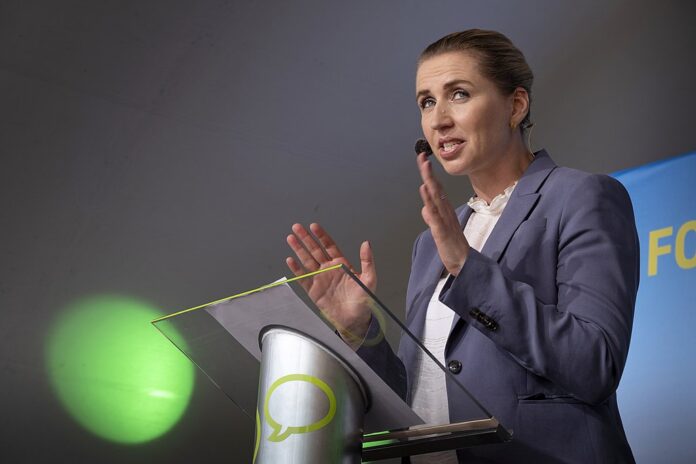Danish Prime Minister Mette Frederiksen attacked on Copenhagen street, highlighting a surge in violence against European politicians just days before the EU elections
On Friday, Danish Prime Minister Mette Frederiksen was assaulted on a street in Copenhagen, just two days before the European Parliament elections. The Social Democrat leader was reportedly “shocked” by the incident, although eyewitnesses noted that she did not appear visibly injured. Danish broadcaster TV2 confirmed that a suspect had been arrested.
This attack on Frederiksen occurs amidst heightened political tensions, as Europe witnesses a worrying spate of violence against its politicians. Recently, Slovakia’s Prime Minister Robert Fico survived multiple gunshot wounds in an assassination attempt, and Social Democrat MEP Matthias Ecke was beaten while campaigning in Germany. In another alarming incident, a far-right Alternative for Germany party politician was stabbed with a box cutter in Mannheim.
Political leaders and citizens alike expressed their shock and condemnation of the assault on Frederiksen. Roberta Metsola, president of the European Parliament, denounced the violence, stating, “Tonight’s assault on the Danish Prime Minister is appalling. Violence has no place in politics. Keep strong, Mette!” European Commission President Ursula von der Leyen also expressed her dismay and support, saying, “I was so shocked at the news of you being assaulted tonight. I condemn this despicable act which goes against everything we believe and fight for in Europe. I wish you strength and courage — I know you have plenty of both.”
Denmark’s Social Democrat Environment Minister Magnus Heunicke highlighted the impact of the attack on those close to Frederiksen, stating, “We all have a responsibility to look after each other and the values our country is built on.” Morten Løkkegaard, a candidate for the centre-right Liberal Party in the upcoming election, emphasized the importance of maintaining democratic debate, saying, “Violence and assault undermine the public debate and thus our democracy.” Swedish Prime Minister Ulf Kristersson also conveyed his concern and solidarity, writing, “Tonight my thoughts and those of my family are with her.”
Frederiksen, a significant figure in Danish politics since 2019, is known for her ability to build alliances across political divides and is considered a potential future candidate for the European Council president. Her party leads in the latest polls ahead of Sunday’s election.
Analysis:
Political Impact
The assault on Mette Frederiksen, occurring so close to the European Parliament elections, has significant political ramifications. This incident not only highlights the escalating violence against politicians but also raises concerns about the safety and security of public figures. The attack could influence voter sentiment, potentially increasing support for parties advocating for stronger law enforcement and security measures. Additionally, it may prompt political leaders to prioritize discussions on political violence and the protection of democratic processes.
Social Reflection
This violent incident underscores the fragility of social cohesion in contemporary Europe. It reflects a growing trend of intolerance and aggression towards political figures, which could erode public trust in democratic institutions. The attack on Frederiksen may lead to increased public discourse on the importance of civil discourse and respect for differing political viewpoints. It also highlights the need for societal efforts to address the root causes of political violence, including polarization and radicalization.
Psychological Aspect
Psychologically, such attacks can have a profound impact on both the victims and the broader public. For Frederiksen, the assault could lead to increased stress and anxiety, potentially affecting her political performance and personal well-being. For the public, repeated incidents of political violence can create a climate of fear and insecurity, undermining confidence in the safety of civic engagement and political participation.
Sociological Angle
From a sociological perspective, the assault on Frederiksen reveals the deepening divides within European societies. It signifies the breakdown of social norms that traditionally safeguard political leaders and democratic practices. The incident may prompt a reevaluation of how societies address political dissent and protect public officials. It also highlights the role of media in shaping public perceptions of political violence and the responsibilities of both citizens and authorities in maintaining social order.
Fashion Culture
While the assault on Frederiksen does not directly relate to fashion culture, it does influence public perception of political figures and their personas. Leaders’ appearances and public engagements become more scrutinized in times of crisis, indirectly affecting their image and how they are perceived by the public. This event underscores the importance of resilience and dignity in political leadership, qualities that often translate into public admiration and influence broader cultural trends
